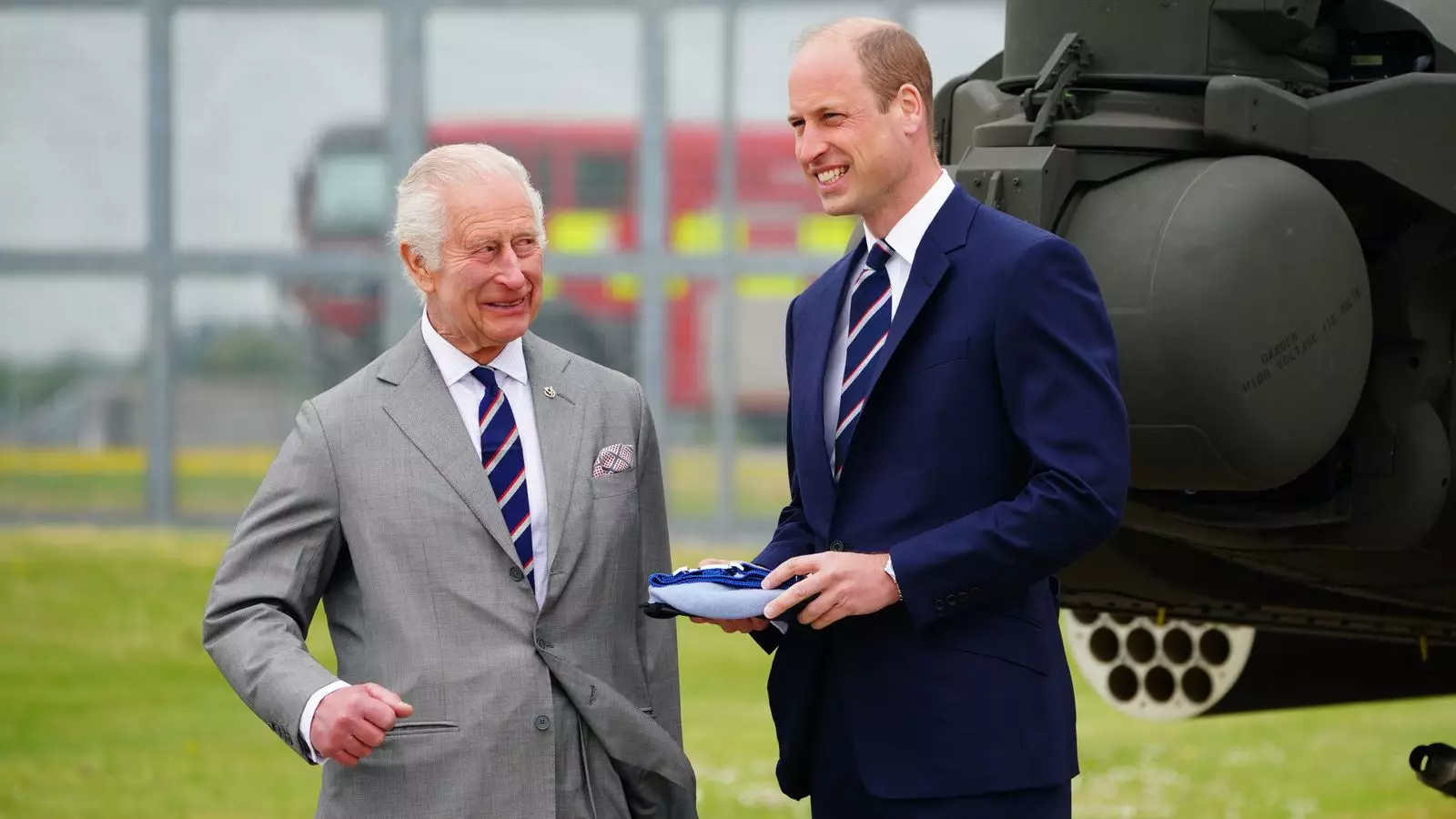Recently, the King opened up about the loss of his sense of taste as a result of undergoing cancer treatment. The candid discussion took place during a visit in Hampshire, where he engaged with a veteran who had previously undergone chemotherapy for testicular cancer. This revelation sheds light on the challenging side effects that cancer patients often face during treatment.
In a significant move, the King officially handed over the role of colonel-in-chief of the Army Air Corps to Prince William. This transition marked a symbolic passing of the torch to the next generation of leaders within the royal family. The monarch and the heir-to-the-throne were seen smiling and chatting during their visit to the Army Aviation Centre in Middle Wallop, Hampshire.
The decision to transfer the role to Prince William was met with mixed emotions, as the King expressed that the handover was “tinged with great sadness.” After 32 years of being the colonel-in-chief of the Army Air Corps, he shared his admiration for the unit and its achievements. Despite his sadness, he expressed hope that the Army Air Corps would continue to thrive under Prince William’s leadership.
During the visit, the King unveiled a plaque commemorating an Apache AH Mk1, the first of its kind to be displayed at a UK museum. This act served as a tribute to the history and significance of the helicopter within the Army Air Corps. Additionally, Prince William embarked on his first engagement with the unit, receiving a briefing on its work and inspecting training and operational aircraft.
Looking ahead, the King is set to knight the Archbishop of Canterbury for his role in the coronation and bestow a damehood upon bestselling author Jilly Cooper. These ceremonies serve as a continuation of the monarch’s royal duties, recognizing individuals for their contributions and achievements. Each recipient will be greeted personally by the King at Windsor Castle.
While the King has been investing individuals with honours over the past few months, these ceremonies have taken place in private, during individual audiences at royal residences. This more intimate setting allows for a more personal interaction between the monarch and the recipients of these prestigious honours.


Leave a Reply